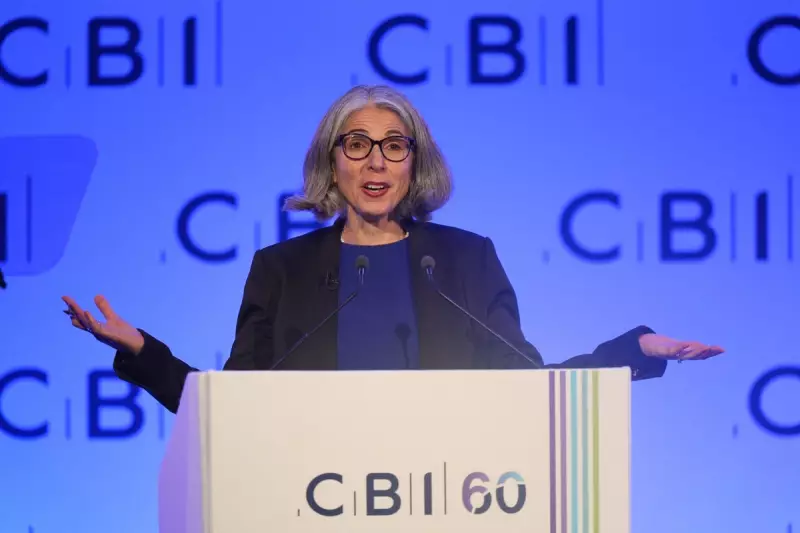
The Chancellor of the Exchequer, Rachel Reeves, is facing significant pressure from Britain's leading business organisation to avoid what they describe as "death by a thousand taxes" in this week's crucial Budget announcement.
Business Leaders Demand Strategic Approach
Rain Newton-Smith, the director general of the Confederation of British Industry (CBI), has issued a stark warning to the government, urging a fundamental "change of course" in economic policy. Speaking at the CBI's conference in Westminster on Monday 24th November 2025, she called for the Chancellor to demonstrate political courage by making difficult decisions rather than imposing numerous smaller tax increases on British businesses.
"Prove it – against opposition, against short-term politics, be it on welfare, be it pension increases, show the markets you mean business," Newton-Smith declared in her address to business leaders and policymakers.
Economic Challenges Facing the Chancellor
The scale of the challenge confronting Ms Reeves has been amplified by reports that the Office for Budget Responsibility (OBR) is preparing to downgrade its economic growth forecasts for every year until the next scheduled election in 2029. This revision, beginning with 2026 projections, would significantly reduce anticipated tax revenues and complicate the government's fiscal planning.
Ms Reeves has already acknowledged publicly that the OBR's reassessment of productivity assumptions will negatively impact growth forecasts. This economic reality leaves the Chancellor with limited options as she attempts to balance the books while maintaining what she has described as "historically-low" financial headroom against potential future economic shocks.
Potential Tax Measures Under Consideration
According to multiple reports, the government is considering several significant tax measures to address the fiscal shortfall. The Times has revealed that more than 100,000 high-value properties could face a new levy targeting homes worth over £2 million, potentially raising between £400-£450 million annually.
This proposed property tax would involve revaluing approximately 2.4 million properties in the top three council tax bands to determine which would be subject to the additional charge. The newspaper reports that homeowners would be offered the option to defer payment until they either sell the property or pass away, preventing forced sales due to tax liabilities.
Additionally, the Chancellor is widely expected to extend the current freeze on income tax thresholds, a move that could have substantial consequences for millions of workers. Analysis from the Institute for Fiscal Studies suggests that a two-year extension could result in 960,000 more people paying income tax and 790,000 additional taxpayers being dragged into the higher rate bracket as wage inflation pushes them across threshold boundaries.
Welfare Reform and Fiscal Balancing Act
While calling for restraint in business taxation, Newton-Smith specifically urged the Chancellor to confront opposition within her own party regarding welfare spending reductions. This advice appears to conflict with expectations that Ms Reeves will lift the controversial two-child benefit cap, a policy change popular with Labour backbenchers and activists that could cost the Treasury more than £3 billion.
However, in what may represent a compromise position, the Chancellor is expected to extend measures targeting benefit fraud, with projections suggesting this could save approximately £1.2 billion by March 2031.
Newton-Smith framed the situation in stark terms, warning that "short-term politics leads to a long-term decline, and this country cannot afford another decade of stagnation." She emphasised the need for decisive action, stating that the government should demonstrate "the courage to take two tough decisions rather than 20 easier ones" and opt for "one or two broad tax rises, rather than death by a thousand taxes."
As Wednesday's Budget approaches, the Chancellor finds herself navigating between competing pressures from business leaders demanding tax restraint and political allies advocating for maintained social spending, all while confronting deteriorating economic forecasts that threaten to undermine her fiscal strategy.





